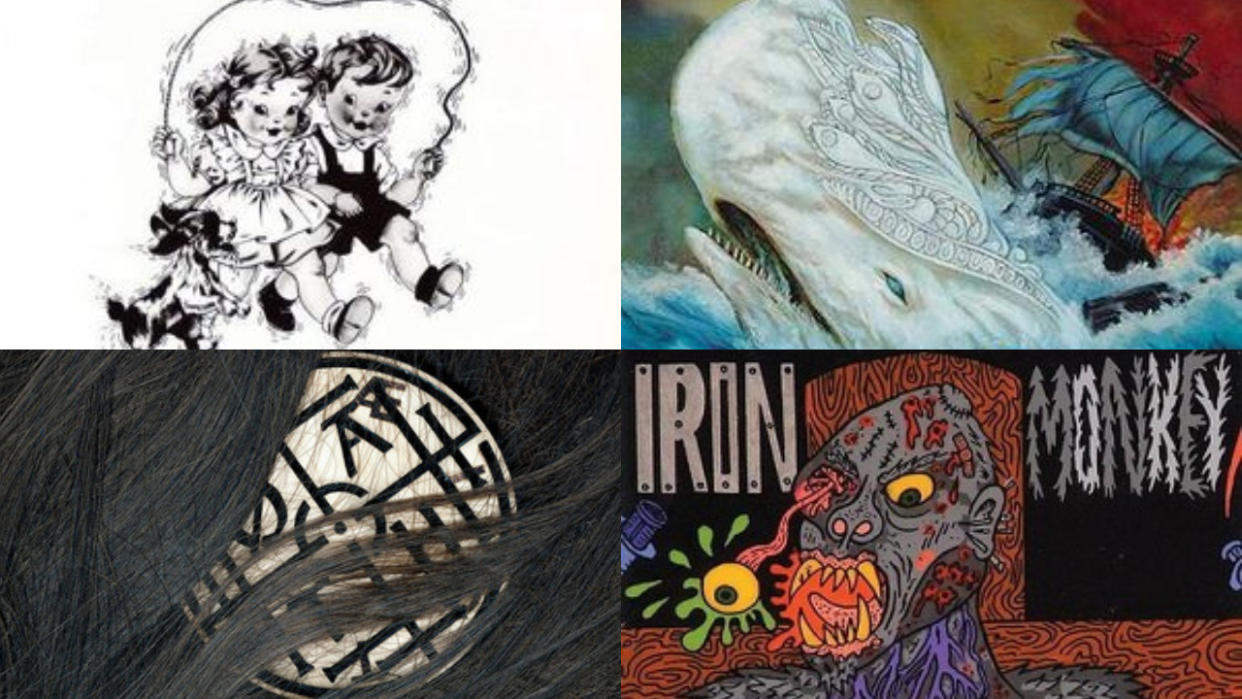A beginner's guide to sludge metal in five essential albums

A need for speed in the early 80s begat hardcore punk, thrash, grindcore and every shade in between, but by the end of the decade some bands had begun to take the complete opposite approach, slowing down to almost glacial pace to craft the unwieldy, stomach-churning mire of sludge metal.
Though ostensibly an offshoot of doom, in truth sludge owes as much to hardcore as it does Black Sabbath, Black Flag's My War and Flipper's Generic setting an early precedent for dialing back the pace and making every riff sound like it comes from beneath a mountain of tar. The genre has come a long way since its roots however, finding a home everywhere from the swamps of Louisiana to the backwaters of Washington state, even taking on a cosmic edge in more recent years. That in mind, here are five albums that have defined the impenetrable depths of sludge metal.

Melvins - Gluey Porch Treatments (1987)
Melvins' 1987 debut Gluey Porch Treatments is as much a blueprint for the wretched trudge of sludge as it is for the primordial stages of grunge, both genres taking cues from the Washington band's penchant for agonisingly drawn-out riffs and squalling feedback. Nirvana would offer their own faithful adaptation on their own debut Bleach just two years later, but Melvins were the absolute grand-masters, opening track Eye Flys the perfect distillation of sludge's penchant for agonised howls and unwieldy, suffocating riffs.
Eyehategod - Take As Needed For Pain (1993)
The swamps of Louisiana were teeming with sludge bands at the start of the 90s, the likes of Eyehategod, Crowbar and Acid Bath all helping define the nascent genre and giving rise to later groups like Down, but few bands came as crusty or more filth-flecked than Eyehategod. The band's debut In The Name Of Suffering was as scrappy and threadbare as any kvlt black metal release, but even with a bigger budget and more refined production Take As Needed For Pain felt utterly scaborous, its lyrical themes of addiction, crime and poverty a reflection of the band's own lives at the time and so depraved it made their contemporaries look like polished rock stars.
Iron Monkey - Our Problem (1998)
The US might have cornered the market on sludge, but they didn't hold an entire monopoly. In the UK's East Midlands, Fudge Tunnel would pick up the baton from Melvins and fuse noise rock and sludge, but it was contemporaries Iron Monkey that best came to define British sludge, their 1998 release Our Problem issuing howls from the bowels of hell while bringing back some of the Sabbath groove, leaving an indelible mark that affected generations of subsequent sludge-spattered groups from Raging Speedhorn to Hang The Bastard.
Mastodon - Leviathan (2004)
Even as early as their 2002 debut Remission, Mastodon were pushing the boundaries of sludge, bringing a sense of melodicism and prog-styled riffing that would open new instrumental in-roads for everyone from Baroness to Boss Keloid and Conjurer. While Crack The Skye would see them finally slip the surly bonds of earth - and sludge - to go full prog metal, 2004's Leviathan set the tone for their ambitious epics to come, never losing that layer of filth the band had exhibited in the earliest days.
Oathbreaker - Maelstrom (2011)
Exemplar of modern sludge metal's capacity for boundaryless experimentation, Oathbreaker's 2011 debut Maelstrom swung a wrecking ball through post-hardcore, black metal, post-metal and beyond. It's a stomping sludgy low-end that ties these disparate threads together however, the titanic stomp of Heirophant, Fate Is Nigh and Sink Into Sin II every bit as filthy as anything Eyehategod, Melvins or Crowbar put out before them.
